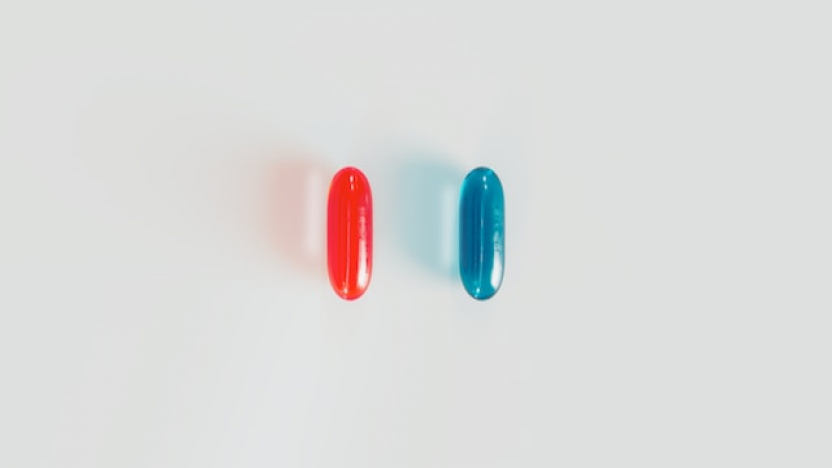Parallel imports: When is rebranding generic medicinal products justified?

Parallel imports, also known as ‘exhaustion of trademark rights’ or the ‘first sale doctrine’, are a well-known limitation to the rights of trademark owners. Volha Parfenchyk discusses the practice in the context of two recent EU rulings on the branding of generic medicinal products.
Parallel importers have the right to export a medical product from one EU country and to import it into another EU country without the explicit permission of the trademark owner. But, do they also have the right to repackage and rebrand generic medicinal products (‘generics’) to include the trademark of the (often more reputable) reference medicinal product (RMP) before selling them in the import country? This was the question before the Court of Justice of the EU (CJEU) last year in two joined cases (C-253/20 and C-254/20).
Parallel imports and trademark use in the EU
Swiss multinational pharmaceutical corporation Novartis markets two RMPs, protected by EU trademarks (EUTMs) in the Netherlands and Belgium. The first is marketed under the EUTM ‘Femara’ in both countries (Case C-253/20); the second is marketed under the EUTM ‘Rilatine’ in Belgium and ‘Ritalin’ in the Netherlands (Case C-254/20).
Sandoz, an affiliate of Novartis, marketed the generic equivalents of these products in Belgium and the Netherlands: the first under the name ‘Letrozol Sandoz 2.5 mg’ and the second as ‘Methylphenidate HCl Sandoz 10 mg’.
Both generics were exported from the Netherlands (where they are significantly cheaper) and resold in Belgium (where they are more expensive) by two parallel importers Impexeco and Pi Pharma. Importantly, in Belgium they were also repackaged and rebranded referencing the Novartis EUTMs and not under the names affixed to the exported generic products themselves.
Novartis brought an action before the Brussels court, claiming infringement of its trademark rights, and won in both cases. Appealed by the parallel importers, the Court of Appeal referred the case to the CJEU for a preliminary ruling.
That court passed its decision on 17 November 2022, concluding that parallel importers can only legitimately repackage and rebrand imported generic products if two conditions are met. First, there should be an “objective necessity” to repackage and rebrand the products, for example, to be able to put the products on the market and commercialise them. Secondly, both products (the generic and the reference medicinal products) have to be identical.
Parallel imports and the objective necessity to repackage and rebrand
Referring to its established case law, the CJEU stated that if the trademark of an RMP has been affixed to the imported generic product, the trademark owner (of the RMP) is entitled to oppose the commercialisation of this imported generic product under certain conditions (as established in the landmark Bristol-Myers Squibb (BMS) decision).
The first condition established by BMS of “objective necessity” is particularly important. It stipulates that, if the opposition to repackaging and rebranding by the trademark owner leads to the artificial partitioning of the market and the impediment to the free movement of goods in the EU, it can no longer be justified. For example, if the parallel importer cannot successfully market the imported product without previously repackaging and rebranding it, artificial partitioning can occur. Repackaging and rebranding of the imported generic products thus constitute an “objective necessity” for the parallel importer to successfully place the imported pharmaceuticals on the market.
Importantly, the CJEU also gave an example of what does not constitute an “objective necessity”. It said that, if the repackaging of the product takes place with the sole purpose to secure a certain commercial advantage, the parallel importer cannot argue objective necessity. This will be the case when products are rebranded to take advantage of the trademark’s reputation, for example, or to place a product in a more profitable category. Should this be the case, the trademark owner of the RMP can legitimately oppose such repackaging and rebranding.
Parallel imports: When are products “identical in all respects”?
To successfully repackage and rebrand imported generics, parallel importers must also meet the second condition; namely, both products (the RMP and the imported generic) must be identical. This condition will not be met if both products are merely bio-equivalent, as is often the case with generic and reference medicinal products. Similarly, this condition will not be met where there is a so-called ‘narrow therapeutic margin’ in the products at issue.
Instead, this condition will only be met when both products are identical in “all respects”. This can be the case, for example, when both products are manufactured by the same company, by economically linked companies (as in the present case), or when they constitute essentially one and the same product marketed under two sets of rules.
More clarity regarding repackaging and rebranding for parallel imports in the EU
The November 2022 ruling is important because it provides clarity regarding the circumstances that may fall under the “objective necessity” criterion, thereby entitling the importers of generic medicinal products to use the (often more well-known and reputable) trademark of the reference medicinal product. It logically builds on and further develops the criteria, therefore, of the legitimate repackaging and rebranding of pharmaceuticals established in the BMS ruling. In addition, it also establishes the criteria for pharmaceutical similarity, by defining that more than just bio-equivalence of the two products is required to be able to call them “identical”.
To find out more about trademark protection for medicinal products or for specific guidance on parallel imports, speak to your Novagraaf attorney or get in touch using the button below.
Volha Parfenchyk works in Novagraaf’s Knowledge Management department. She is based in Amsterdam.